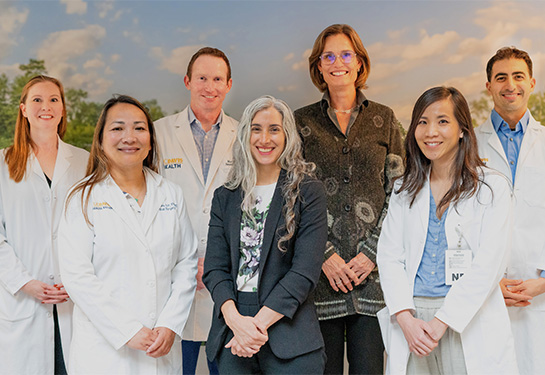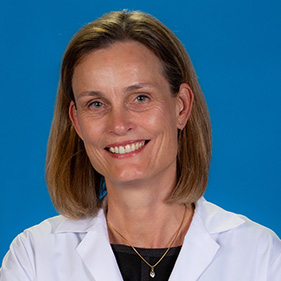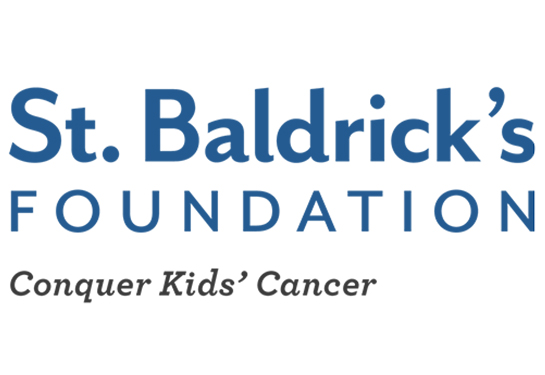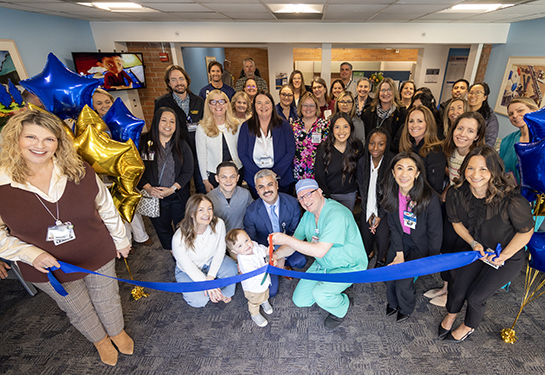Pediatric Neurological Surgery team expands to better serve patients
UC Davis Children’s Hospital is now home to the region’s first comprehensive neurosurgical care program
The Pediatric Neurological Surgery program at UC Davis Children’s Hospital has expanded. It can now provide 24/7 neurosurgical care by three fellowship-trained specialist physicians and four specialized advance practice providers (APPs).
By combining the subspecialty expertise of all three surgeons on the team, the hospital can offer treatment for the full breadth of pediatric neurosurgical disorders. While UC Davis pediatric neurosurgery specialists are skilled to provide comprehensive surgical care for disorders of the brain and spine, each specialist has also developed a subspecialty to take optimal care of the patients and families served:
- Marike Zwienenberg specializes in craniofacial and congenital surgery. She is the chief of pediatric neurological surgery and lead neurosurgeon on the fetal surgery team, performing intra-uterine repair of myelomeningocele. She also routinely uses minimally invasive endoscopic surgery, virtual planning-guided cranial vault remodeling and cranial distraction to treat patients with craniosynostosis.
- Julia Sharma specializes in the surgical treatment of epilepsy and leads the newly developed the UC Davis Comprehensive Epilepsy Program. She also has expertise in surgical treatment of spasticity and complex spinal cord lipomas. Sharma and the pediatric epilepsy team offer state-of-the-art diagnostic and treatment techniques, with the goal of seizure-free living throughout a patient’s lifespan.
- Cameron Sadegh has expertise in treating hydrocephalus, brain tumors and moyamoya disease. He offers minimally invasive surgical options and makes use of stereotactic brain navigation, intra-operative ultrasound and flexible endoscopic surgery.
In addition, UC Davis Health offers expertise in the endoscopic management of hydrocephalus, a condition in which excess cerebrospinal fluid builds up within the fluid-containing cavities of the brain. It is one of the most common disorders treated by pediatric neurosurgeons. Sadegh trained with the surgeon who developed the endoscopic technique and brings exceptional skill and experience to the complex procedures. Supported by a growing translational research program, UC Davis Health is positioned to develop new treatment options for children with hydrocephalus.
“Caring for children gives me the opportunity to make a positive lifelong impact, and it’s a wonderful honor,” said Zwienenberg, who has published treatment protocols and guidelines to optimize patient care throughout the field of pediatric neurological surgery. “Here at UC Davis, with the combined expertise of our three pediatric neurosurgeons in tandem with our incredible team of APPs, we’re ready to treat any pediatric neurosurgical disorder and provide excellent care and advice to our patients and their families.”
Caring for children gives me the opportunity to make a positive lifelong impact, and it’s a wonderful honor.” —Marike Zwienenberg
The team includes APPs — nurse practitioners and physician assistants specially trained in pediatric neurosurgery. APPs increase access to services, which in turn allows surgeons to focus more on surgery and research.
The teamwork between surgical care and ongoing support by APPs has multiple advantages. For one, patients get a comprehensive review of their medications and discharge instructions, so they can go home sooner. The team also helps with the transition from inpatient to outpatient care — which results in better patient outcomes.
“The pediatric neurosurgeons at UC Davis are the kindest and most compassionate group of surgeons I have worked with in my career,” said Teresa Gonzalez, the APP team’s supervisor. “They are extraordinarily talented physicians who take time with each individual family to carefully explain the diagnosis, interventions and recommendations for their child.”
The APP team includes:
- Tram James, who has expertise in plagiocephaly and helps patients who require helmet therapy to correct cranial deformity.
- Max Caudle, a physician assistant and graduate of the nationally accredited UC Davis APP Neurosurgery Fellowship, who primarily works in the inpatient hospital setting.
- Peggy Jung, who focuses on epilepsy and provides specialized care to patients before and after epilepsy neurosurgery.
For more information about the expanded pediatric neurosurgery program, visit the team’s website.





